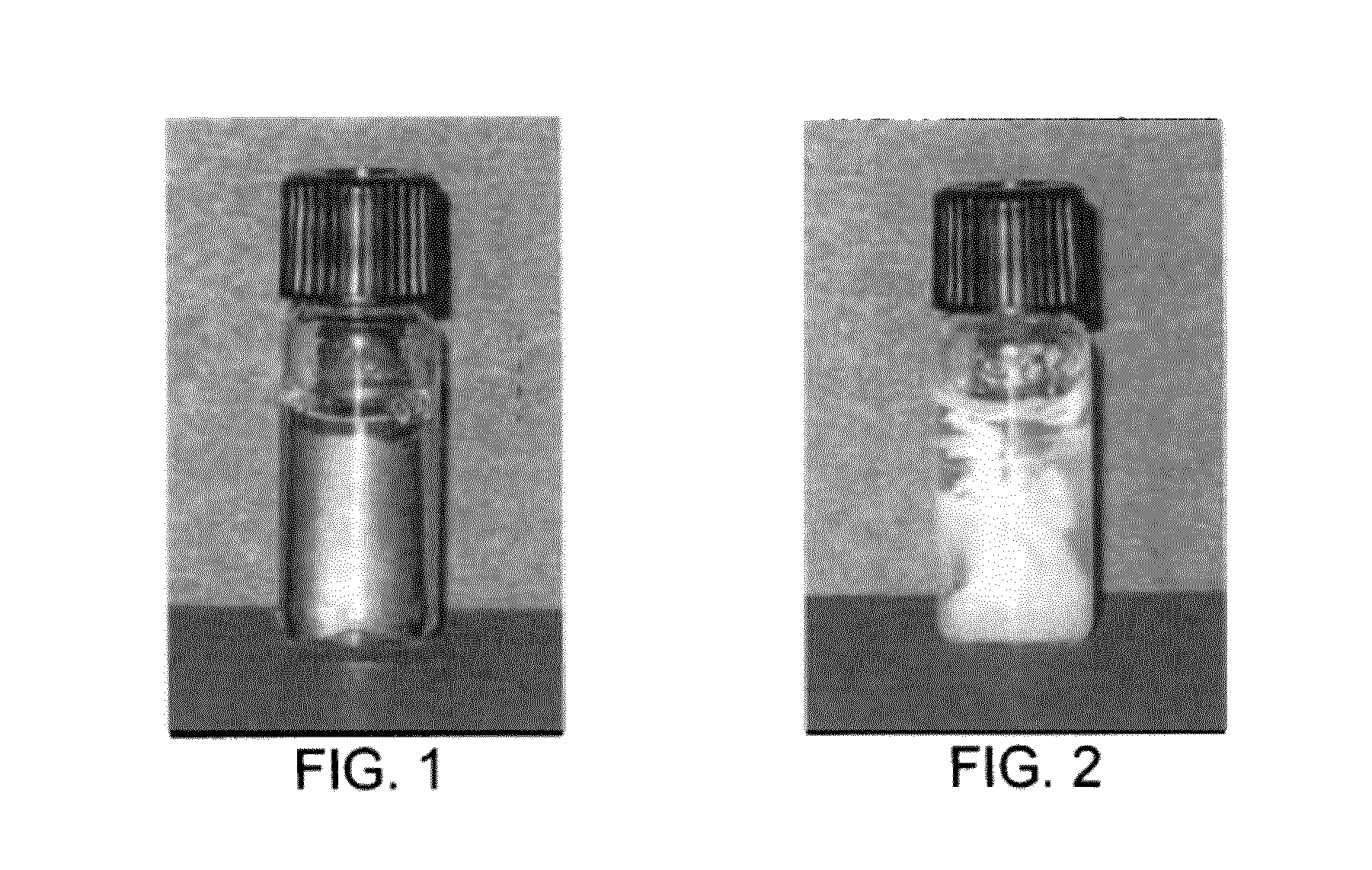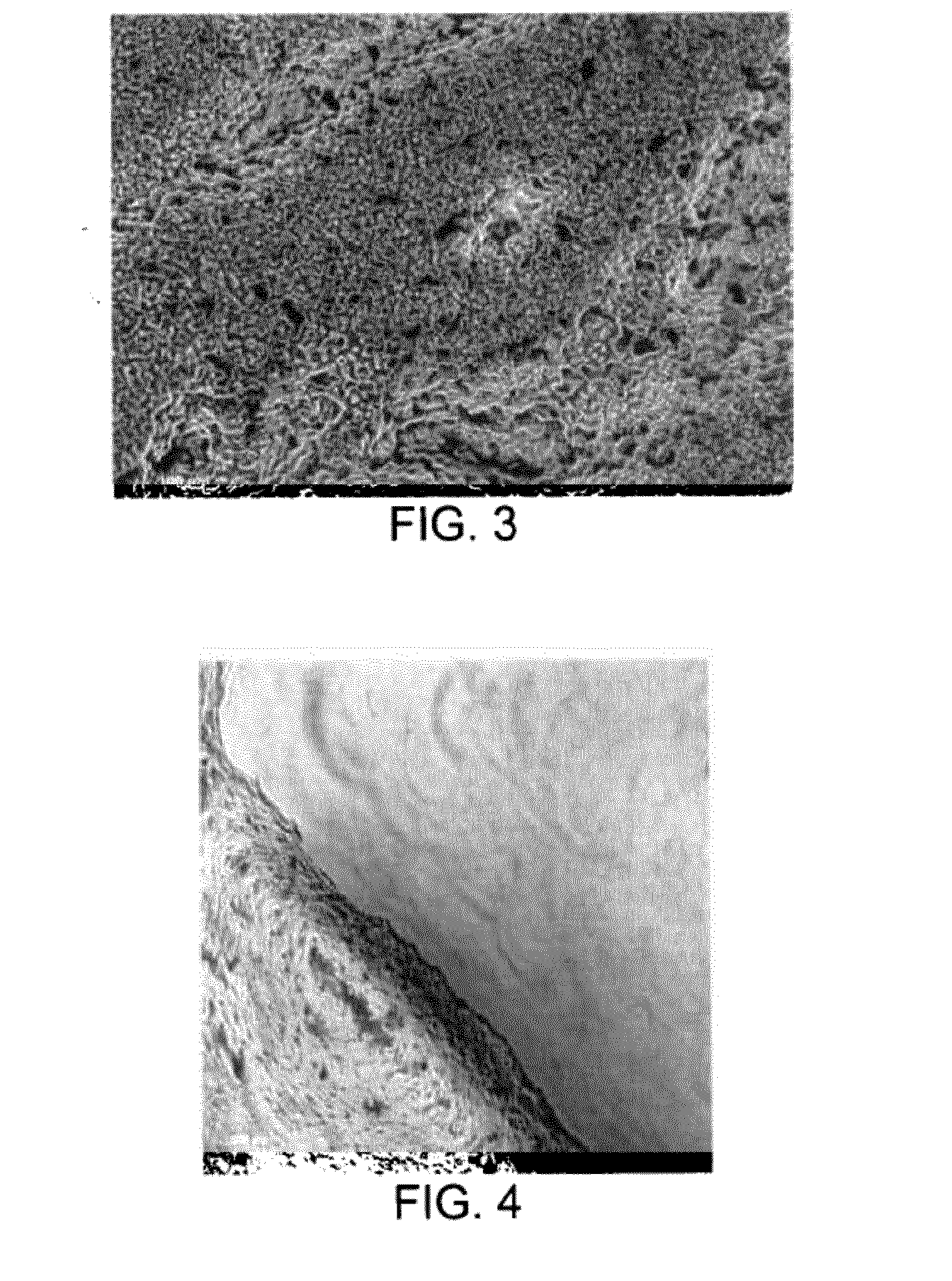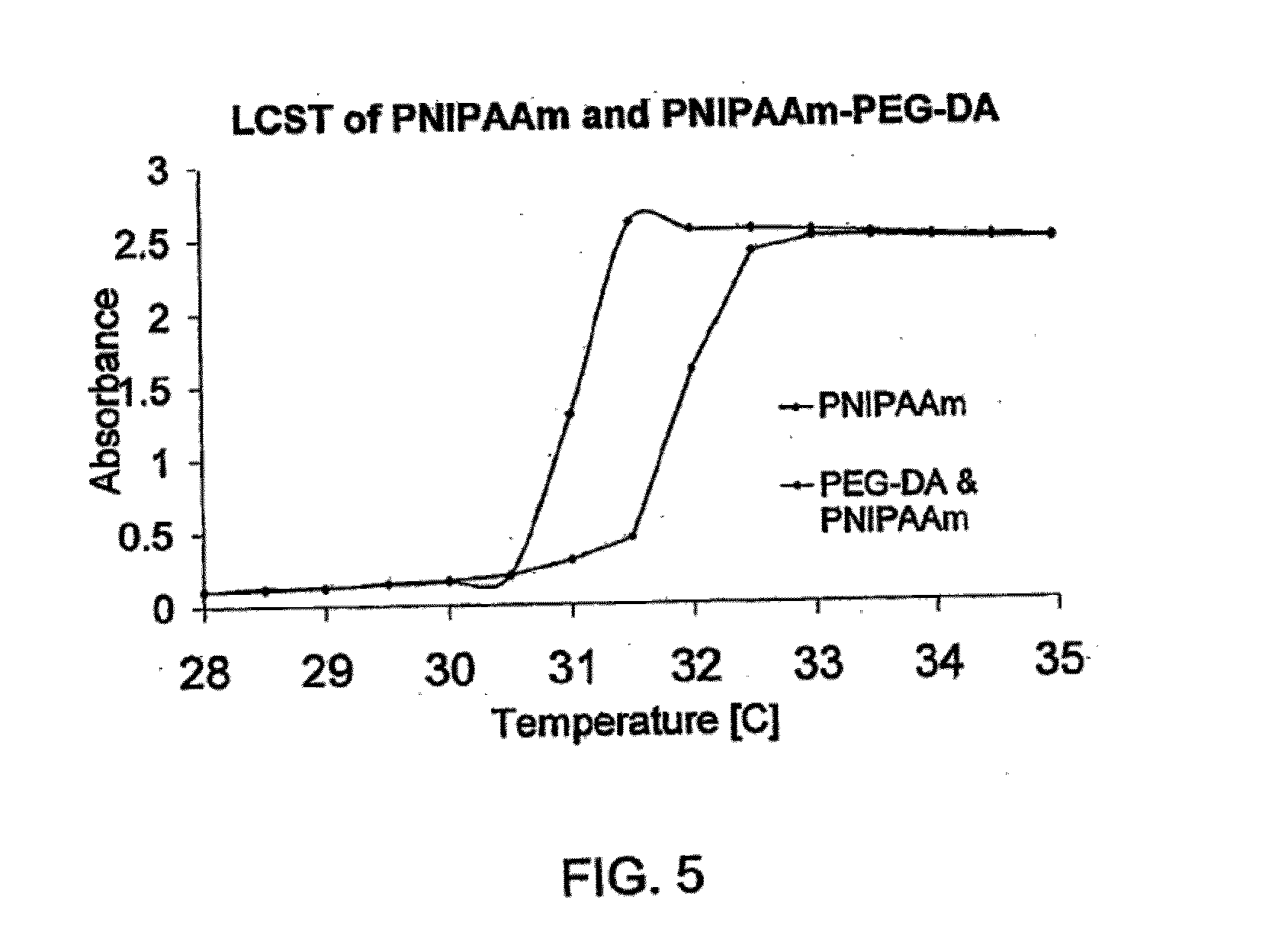Thermo-responsive hydrogel compositions
a technology of hydrogels and compositions, applied in the field of hydrogels, to achieve the effect of improving biological properties and desirable release kinetics
- Summary
- Abstract
- Description
- Claims
- Application Information
AI Technical Summary
Benefits of technology
Problems solved by technology
Method used
Image
Examples
example 1
Wound and Ocular Applications
Materials
[0051]Poly(lactide-co-glycolide) 50:50 (PLGA 50:50; ave. Mw 7,000-17,000, ester terminated), polyvinyl alcohol (PVA; ave. Mw 30,000-70,000), poly(ethylene glycol)diacrylate (PEG-DA; ave. Mn=575), N-isopropylacrylamide (NIPAAm) 97%, n-tert-butylacrylamide (NtBAAm) 97%, N,N,N′,N′-tetramethylethylenediamine (TEMED), Ammonium persulfate (APS), Lipopolysaccharides (LPS) from Salmonella Typhimurium and chlorehexidine digluconate solution (20% in water) were obtained from Sigma-Aldrich. Dichloromethane and methanol were obtained from Fisher Scientific in HPLC grade. Difco™ nutrient broth and Bacto™ agar were purchased from BD Biosciences. A-lysine (N6-acryloyl lysine) was provided by CIS Pharma (Bubendorf, Switzerland). Cosmocil CQ (20% polyhexamethylene biguanide solution) was obtained from Organic Creations. Dexamethasone 21-phosphate disodium salt ≧98% was obtained from MP Biomedicals.
Hydrogel Preparation for Dermal Application
[0052]Poly (NIPAAm)-PE...
example 2
Ocular Applications
[0074]This example demonstrates intravitreal and subconjunctival injections of hydrogels incorporating dexamethasone and / or dexamethasone sodium phosphate.
Materials
[0075]Poly(lactide-co-glycolide) 50:50 (PLGA 50:50; ave. Mw 5,000-15,000), polyvinyl alcohol (PVA; ave. Mw 30,000-70,000), poly(ethylene glycol)diacrylate (PEG-DA; ave. Mn=575), N-isopropylacrylamide (NIPAAm) 97%, n-tert-butylacrylamide (NtBAAm) 97%, N,N,N′,N′-tetramethylethylenediamine (TEMED), ammonium persulfate (APS), dexamethasone ≧97%, dexamethasone 21-phosphate disodium salt ≧98%, lipopolysaccharides (LPS) from Salmonella Typhimurium were obtained from Aldrich-Sigma. Ammonium sulfate was obtained from Acros Organics. Methylene chloride and methanol were obtained from Fisher Scientific in HPLC grade. Acryloyl-lysine or A-lysine (N6-acryloyl lysine) was obtained from CIS Pharma. [1, 2, 4-3H]dexamethasone was obtained from GE Healthcare Life Sciences. Dexamethasone sodium phosphate solution (4 mg / ml...
example 3
Cell Adhesion
[0101]Thermo-responsive hydrogels were synthesized based on free radical initiated polymerization. A combination of N,N,N′,N′-tetramethylethylenediamine (TEMED) and ammonium persulfate (APS) were used as initiators. Polymerization proceeded at 0° C. for an hour. The incorporation of the monomer A-lysine increased the LCST of the hydrogels because of its hydrophilic nature, which was further adjusted to desirable values by the incorporation of the more hydrophobic monomer N-tert-butylacrylamide (NtBAAm). PEG-DA-575 was used as crosslinker for the hydrogel. The crosslinker density is critical to the hydrogel mechanical property. To make the hydrogel injectable for needles around 27 G, 2 mM PEG-DA was used. The exact composition of thermo-responsive hydrogel synthesis is summarized in Table 4. It should be noticed that the addition of TEMED immediately triggers the hydrogel polymerization, thus should be the last component added to the hydrogel precursor. Also, since the m...
PUM
| Property | Measurement | Unit |
|---|---|---|
| temperature | aaaaa | aaaaa |
| critical solution temperature | aaaaa | aaaaa |
| physiological temperature | aaaaa | aaaaa |
Abstract
Description
Claims
Application Information
 Login to View More
Login to View More - R&D
- Intellectual Property
- Life Sciences
- Materials
- Tech Scout
- Unparalleled Data Quality
- Higher Quality Content
- 60% Fewer Hallucinations
Browse by: Latest US Patents, China's latest patents, Technical Efficacy Thesaurus, Application Domain, Technology Topic, Popular Technical Reports.
© 2025 PatSnap. All rights reserved.Legal|Privacy policy|Modern Slavery Act Transparency Statement|Sitemap|About US| Contact US: help@patsnap.com



